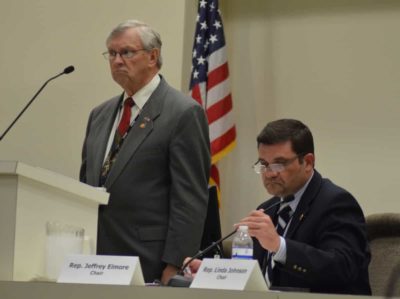

On December 1, 2019, North Carolina will finally “Raise the Age.” This has been a multi-year, bipartisan initiative to raise the age of juvenile court jurisdiction to include 16 and 17-year-olds for all offenses except violent felonies and traffic infractions. North Carolina is the last state in the country to stop automatically charging 16 and 17-year-olds as adults.
An essential element of North Carolina’s effort to address juvenile court jurisdiction is through School Justice Partnerships. School Justice Partnerships are written agreements between school districts, law enforcement, local court officials, and other stakeholders aimed at reducing the number of school suspensions and school-based court referrals for minor student misconduct.
Reducing the number of school-based referrals to juvenile court is important to the safety of students with disabilities. Children with disabilities are often more vulnerable to peer influence and more prone to making impulsive decisions. The North Carolina Department of Public Safety found that 100% of committed youth had at least one mental health or substance use diagnosis and 72% of committed youth had more than one diagnosis in 2017.
Students with disabilities are more likely to be referred to juvenile court for school-based offenses than their non-disabled peers and many law enforcement officers are not properly trained to deescalate situations involving students with developmental or mental health needs. As a result, law enforcement interactions can cause lasting trauma. Students with disabilities need additional educational and behavioral supports in order to succeed in the classroom, not a referral to the juvenile delinquency system.
When you imagine what kind of behavior could land a student in juvenile delinquency court, you may envision a brutal schoolyard fight or the theft of expensive school property. In reality, children as young as 7 could end up in front of a juvenile judge for repeatedly breaking school pencils (disorderly conduct at school), threatening to punch a teacher (communicating threats), and throwing pens at classmates (simple assault). Ninety-two percent of school-based referrals were for misdemeanors for the 2016-2017 school year. According to the North Carolina Department of Public Safety, 44% of all the juvenile complaints received in 2018 were for school-based offenses, with disorderly conduct at school ranking in the top three of all complaints received. Elementary school students could end up coloring in a courtroom next to their juvenile court counselor because they’ve been subjected to a process they don’t even understand.
North Carolina has a long history of using exclusionary discipline practices such as suspension, expulsion, and school-based court referrals to address minor student misconduct — they do not work. Court involvement for minor misconduct actually increases the likelihood that a student will re-offend. Suspended students often struggle to catch up with work when they return to their classrooms which may result in continued disruptions and failing grades.
School Justice Partnerships are an essential component of efforts to change current practice. The Partnerships promote student safety by using a graduated response model, meaning students receive evidence-based, age-appropriate school and community interventions before using exclusionary discipline practices. Stakeholders agree on a set of minor, nonviolent behaviors to manage with the agreement as well as a list of intervention options to address the prescribed behaviors. Interventions reflect the nature and frequency of the misconduct. Some example interventions are redirection, contacting guardians, loss of privileges, community service, restitution, Functional Behavioral Assessments, and Family Involvement Team plans.
School Justice Partnerships present school officials, law enforcement officers, and other stakeholders with a unique opportunity to positively impact all students, but especially students with disabilities. The partnerships help participants identify and remedy the underlying causes of the student misconduct rather than relying on exclusionary discipline practices that have lower levels of success. Several counties in North Carolina are already benefiting from School Justice Partnerships. Contact your local chief district court judge to find out how you can support the implementation of a School Justice Partnership in your community.




